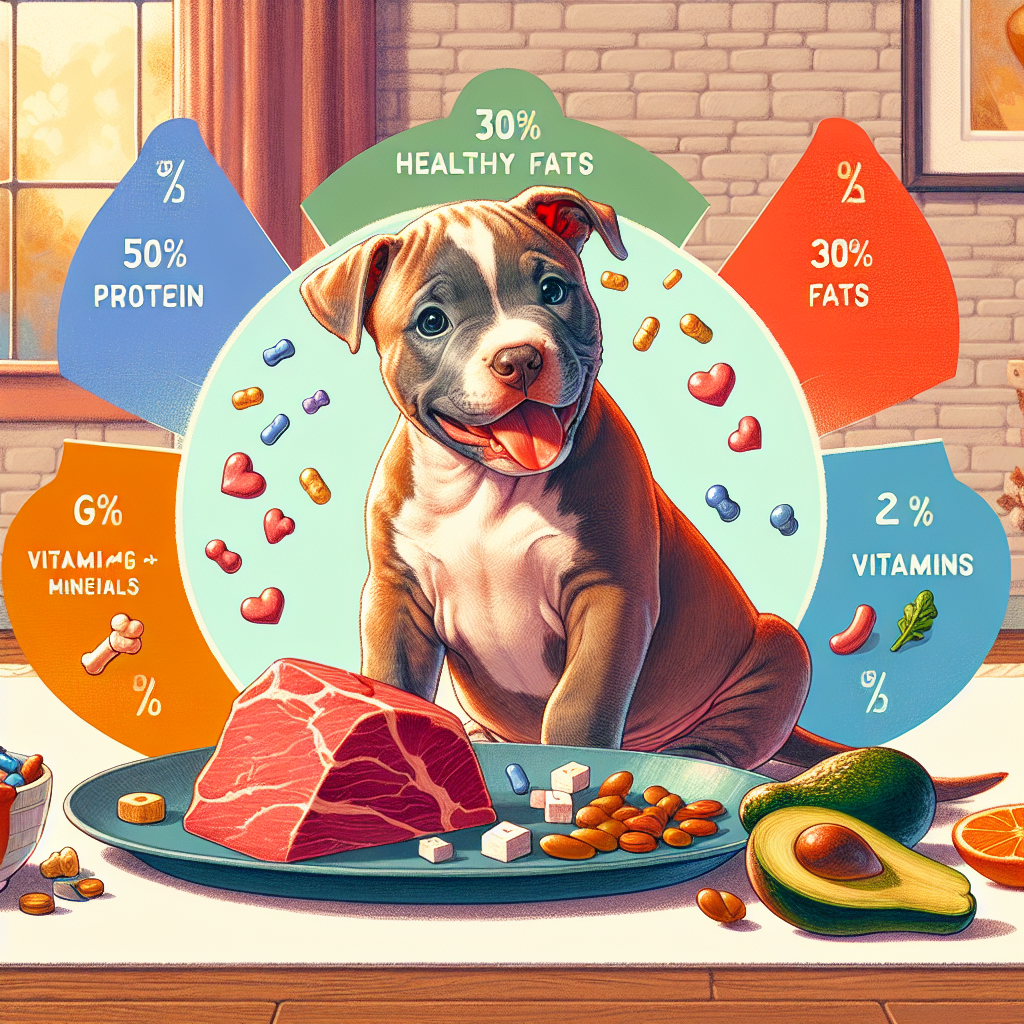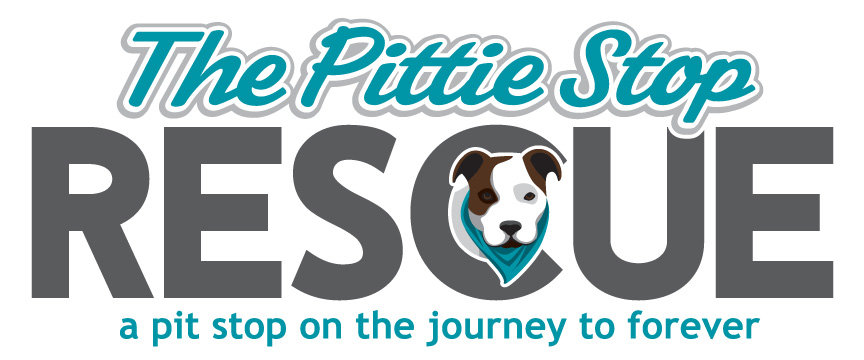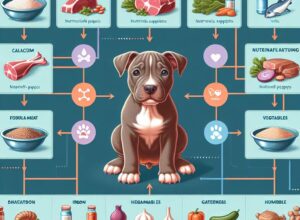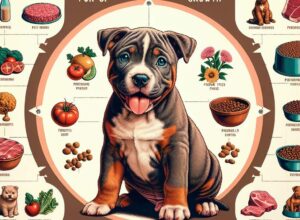
Key Takeaways
-
Pitbull puppies require a diet rich in protein to support muscle development and overall growth.
-
Fats are crucial for energy, but the amount should be managed to prevent obesity and related health issues.
-
Calcium and phosphorus must be balanced in their diet to avoid developmental bone problems.
-
Consistent feeding schedules and portion control are key to maintaining a healthy weight.
-
Regular check-ups with a vet are necessary to monitor your puppy’s health and adjust their diet as needed.
Unlocking a Healthy Start for Your Pitbull Puppy
Raising a pitbull puppy is a rewarding journey that begins with proper nutrition. As these pups grow into powerful and loyal companions, their dietary needs must be met with precision and care. A well-balanced diet not only fuels their rapid growth but also lays the groundwork for a lifetime of health and vitality. Let’s dive into the essentials of pitbull puppy nutrition and set the stage for your furry friend’s best life.
Selecting the Right Puppy Food
Choosing the right food for your pitbull puppy is like picking the perfect foundation for a house. It’s the base upon which everything else is built. Look for a high-quality puppy food that’s specifically formulated for large breeds. This ensures the right balance of nutrients to support their fast-growing bodies without accelerating their growth too quickly. Remember, the goal is steady and healthy development, not a race to adulthood.
Understanding Your Pitbull Puppy’s Dietary Needs
Every pitbull puppy is unique, and their dietary needs will vary based on their age, weight, and activity level. But there are some universal truths when it comes to their nutrition. A balanced diet for a pitbull puppy should contain a precise mix of protein, fats, carbohydrates, vitamins, and minerals. This balance is critical for their overall health, energy levels, and development. Pay close attention to the food label and ingredient list when selecting their diet, and don’t hesitate to ask your vet for recommendations.
Nutritional Building Blocks for Pitbull Puppies
To thrive, your pitbull puppy needs the right building blocks. Let’s break down the key components of their diet and understand why each one is so important.
-
Protein: Supports growth and muscle development.
-
Fats: Provides energy and aids in brain development.
-
Carbohydrates: Offers a quick source of energy and dietary fiber.
-
Vitamins and Minerals: Essential for immune function and bone health.
Now, let’s take a closer look at each of these components and how they contribute to your pitbull puppy’s well-being.
Protein: The Muscle Maker
Protein is the cornerstone of your pitbull puppy’s diet. It’s the primary building block for muscle and tissue growth. As your puppy grows, their need for protein is at its peak. High-quality animal proteins like chicken, beef, or fish should be at the top of the ingredient list in their food. The right amount of protein not only supports their muscles but also helps with proper organ development and immune system health.
Fats: The Energy Suppliers
Fats are the next crucial element in your pitbull puppy’s diet. They are dense in energy, which is essential for your active and playful puppy. However, it’s important to find the right balance. Too much fat can lead to obesity, while too little can hinder their growth. Look for foods with healthy sources of fat like fish oil, which also provides omega-3 fatty acids to support brain development and a shiny coat.
Carbohydrates: The Power Source
Carbohydrates are often misunderstood, but they play an important role in your puppy’s diet by providing them with a quick source of energy. Whole grains or alternative sources like sweet potatoes are excellent choices. They also supply dietary fiber, which aids in digestion. Be mindful of your puppy’s reaction to grains, as some may have sensitivities or allergies.
Vitamins and Minerals: The Essentials for Growth
Vitamins and minerals round out the nutritional needs of your growing pitbull puppy. They are crucial for a robust immune system and for building strong bones and teeth. Foods fortified with vitamins like A, E, and D, as well as minerals like calcium and phosphorus, should be part of their daily diet. However, the balance is key, especially with calcium and phosphorus, as too much can cause bone and joint issues in large breed puppies.
Feeding Your Growing Pitbull Puppy
The way you feed your pitbull puppy can be just as important as what you feed them. Consistency is key. Set a feeding schedule and stick to it. This not only helps with house training but also ensures they’re receiving the right amount of food at regular intervals. A growing puppy’s stomach is small, so they’ll need to eat three to four times a day. As they grow, you can reduce feeding times to twice a day.
Portion Sizes and Frequency
Portion control is vital. Overfeeding can lead to obesity, while underfeeding can hinder development. Use the feeding guide on your puppy food as a starting point, but be prepared to adjust. Keep an eye on your puppy’s body condition and energy levels. If they’re looking a bit round or feeling lethargic, it’s time to reassess their portions. Remember, every puppy is different, and their needs can change quickly as they grow.
Switching Foods: A Delicate Process
There may come a time when you need to switch your pitbull puppy’s food – perhaps due to health issues, dietary intolerances, or simply because they’ve outgrown their puppy formula. Transitioning to a new food should be done gradually over the course of a week or more. Start by mixing a small amount of the new food with the old, and slowly increase the proportion of the new food each day. This helps prevent digestive upsets and allows your puppy’s system to adjust.
Reading and Reacting to Your Puppy’s Needs
As a pitbull puppy parent, you’ll need to become adept at reading your pet’s signals. Pay attention to their energy levels, coat quality, stool consistency, and overall demeanor. These are all indicators of their nutritional health. A shiny coat, regular firm stools, and a playful attitude generally mean you’re on the right track.
Keep an eye out for any changes, such as a dull coat, diarrhea, or lethargy. These could be signs that something in their diet isn’t agreeing with them, or they’re missing out on essential nutrients. It’s important to act quickly if you notice any of these symptoms.
Spotting Signs of Malnutrition
Malnutrition can be subtle at first, but there are signs you can look for:
-
Weight loss or poor weight gain
-
Dull, flaky coat or hair loss
-
Lack of energy or playfulness
-
Potbelly, which could indicate worms or poor digestion
If you see any of these signs, it’s crucial to reassess your puppy’s diet and consult your veterinarian.
When to Visit the Vet
Regular vet check-ups are essential for monitoring your pitbull puppy’s growth and health. If you have concerns about their nutrition or notice any signs of malnutrition, make an appointment right away. Your vet can provide valuable insights and help you make informed decisions about your puppy’s diet. They can also rule out any underlying health issues that might be contributing to the problem.
Maintaining Optimal Health
A balanced diet is the cornerstone of your pitbull puppy’s health, but it’s not the only factor. Maintaining an optimal weight is critical for their overall well-being and can help prevent a host of health issues down the line.
Avoiding Overfeeding and Obesity
Obesity is a growing problem in pets, and it can start at a young age. Here’s how to avoid overfeeding your pitbull puppy:
-
Measure their food with a proper measuring cup or scale.
-
Do not leave food out all day; stick to the scheduled feeding times.
-
Limit treats to no more than 10% of their daily caloric intake.
Keeping your puppy lean is not about restricting their diet; it’s about providing the right amount of nutrients and calories for their level of activity.
Exercise: The Other Half of the Equation
Exercise is just as important as diet when it comes to your pitbull puppy’s health. It helps them burn off excess energy, keeps their joints healthy, and contributes to a well-balanced temperament. Make sure your puppy gets plenty of playtimes, walks, and other forms of exercise every day. As they grow, you can introduce more structured activities like obedience training, agility, or even weight pulling, which is a great way to channel their strength and energy in a positive direction.
Dodging Developmental Pitfalls through Nutrition
Your pitbull puppy’s early nutrition can have long-term effects on their health. A diet that’s too high in calories or calcium, for example, can lead to developmental orthopedic diseases such as hip dysplasia. It’s important to choose a puppy food that’s formulated for large breed puppies and follow the recommended feeding guidelines to avoid these pitfalls.
By providing your pitbull puppy with the right balance of nutrients, you’re not just supporting their growth today; you’re helping ensure they have a strong and healthy future.
Ensuring your pitbull puppy’s skeletal health starts with nutrition. The right levels of calcium and phosphorus in their diet are crucial for strong bone development. However, it’s a delicate balance. Too much calcium can cause bone problems in large breed dogs like pitbulls. Stick to a large breed puppy formula and avoid supplementing with additional calcium unless directed by your vet.
Preventing Skeletal Issues
Many large breed puppies, including pitbulls, are at risk for developmental skeletal issues if their diet isn’t properly managed. To prevent these conditions, avoid high-calorie diets that promote rapid growth. Instead, opt for controlled, steady growth that allows the bones to develop without being stressed by excess weight. Regularly monitor your puppy’s growth and consult your vet to ensure they’re on the right track.
Supporting Long-Term Joint Health
For example, including foods rich in omega-3 fatty acids, like fish oil, can help maintain joint health and reduce inflammation. It’s a simple addition to your pitbull puppy’s diet that can have significant long-term benefits.
Alongside a balanced diet, consider incorporating joint-supporting supplements if recommended by your vet. Glucosamine and chondroitin are popular options that may help maintain healthy cartilage and joint function. Remember, always consult with your vet before adding any supplements to your puppy’s diet.
Exercise also plays a vital role in joint health. Regular, low-impact activities like walking or swimming can help strengthen the muscles around the joints, providing better support and reducing the risk of injury.
Remember, the key to preventing joint issues is a combination of proper nutrition, appropriate exercise, and regular check-ups with your vet.
FAQs
As you navigate the journey of raising a pitbull puppy, questions are bound to arise. Here are answers to some of the most frequently asked questions about pitbull puppy nutrition.
How Much Protein Does My Pitbull Puppy Need?
Your pitbull puppy needs a diet with around 22-26% protein content. This will support their rapid muscle growth and development. Always opt for high-quality animal protein sources in their food for the best results.
What Type of Fat is Best for My Puppy’s Diet?
Look for diets that include fats from animal sources and fish oils. These provide the right balance of omega-3 and omega-6 fatty acids to support your puppy’s brain development, coat health, and energy needs.
How Can I Tell if My Puppy is Malnourished?
Signs of malnutrition in puppies include a lack of energy, a dull or brittle coat, poor growth, and weight loss. If you notice any of these signs, consult your vet immediately for a nutritional assessment.
Is Grain-Free Food the Right Choice for My Pitbull Puppy?
Grain-free diets are a popular trend, but they’re not necessary for all dogs. Some puppies may have grain sensitivities or allergies, in which case a grain-free diet can be beneficial. However, grains can be a good source of energy and other nutrients for many puppies. Consult your vet to determine the best diet for your pitbull puppy.
How Often Should I Adjust My Puppy’s Diet?
Your puppy’s diet should be evaluated and potentially adjusted every 3-4 months. As they grow, their nutritional needs will change. Regular vet check-ups will help determine when it’s time to make a change in their diet.
Ensuring your Pitbull puppy is receiving a balanced diet is crucial for preventing malnutrition and promoting healthy growth. A proper diet should include the right balance of proteins, fats, carbohydrates, vitamins, and minerals. Pay special attention to calcium and phosphorus levels to support bone health, particularly in these rapidly growing dogs. Consult with a veterinarian to tailor a feeding plan that’s right for your puppy’s age, weight, and activity level.



